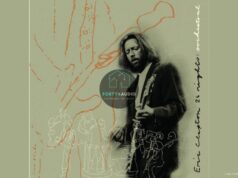The Stranger by Billy Joel Redefined 1977
When The Stranger hit shelves on September 29, 1977, few could have predicted it would become one of the most defining albums of its decade. For Billy Joel, it was more than a commercial breakthrough – it was a creative turning point that captured the emotional complexity of everyday life with a clarity that still resonates nearly five decades later. Produced by Phil Ramone and released by Columbia Records, The Stranger became a landmark in Joel’s discography and a cornerstone of classic rock.
Billy Joel’s Career Before The Stranger
Before The Stranger, Billy Joel was already a respected songwriter, but he hadn’t yet found the commercial success that matched his talent. Albums like Cold Spring Harbor (1971), Piano Man (1973), and Turnstiles (1976) showcased his lyrical wit and piano-driven style, but they didn’t quite break through to the mainstream in the way Columbia Records had hoped. In fact, the label was reportedly close to dropping him.
Joel’s frustration with studio musicians and overproduction led him to insist on using his touring band for The Stranger. That decision, combined with the guidance of producer Phil Ramone, would prove to be a game-changer.
The Phil Ramone Effect on Billy Joel’s Sound
Phil Ramone brought a warmth and intimacy to Joel’s music that had been missing in earlier recordings. Known for his work with Paul Simon and Barbra Streisand, Ramone had a knack for capturing emotional nuance without sacrificing sonic clarity. He encouraged Joel to trust his instincts and his band, resulting in a more organic and cohesive sound.
Ramone’s production style allowed Joel’s storytelling to shine. The album feels lived-in, like a conversation with an old friend – honest, melodic, and deeply human.
Track-by-Track Breakdown of The Stranger
Each song on The Stranger tells a story, often rooted in the lives of working-class Americans, romantic misadventures, and personal reflection. Here’s a closer look at each track and why it matters.
Movin’ Out (Anthony’s Song)
A sharp critique of materialism and suburban ambition, Movin’ Out opens the album with a punch. Its driving rhythm and sarcastic tone set the stage for the themes of identity and disillusionment that run throughout the record.
The Stranger
The title track is a moody, jazz-inflected exploration of the masks people wear. The whistled intro and outro became iconic, symbolizing the hidden parts of ourselves we rarely show.
Just the Way You Are
Originally left off the album by Joel himself, this tender ballad was rescued by Ramone and Joel’s bandmates. It went on to win two Grammy Awards, including Song of the Year. Despite its success, Joel stopped performing it after his divorce from Elizabeth Weber, for whom it was written.
Scenes from an Italian Restaurant
A fan favorite and arguably Joel’s most ambitious composition, this track is a three-part suite that moves from a quiet dinner conversation to a full-blown rock opera. It tells the story of Brenda and Eddie, a couple whose youthful romance fades into adult disillusionment. Inspired by real conversations at a restaurant near Carnegie Hall, it’s a masterclass in musical storytelling.
Vienna
Initially overlooked, Vienna has become one of Joel’s most beloved songs in the streaming era. Its message – slow down, life will wait – resonates deeply with listeners of all ages. Joel has said it was inspired by a trip to visit his estranged father in Austria.
Only the Good Die Young
Controversial upon release, this upbeat track about youthful rebellion and Catholic guilt was banned by several radio stations. Ironically, the controversy only fueled its popularity. Joel has often said the song is more about freedom than disrespect.
She’s Always a Woman
A delicate waltz with biting lyrics, this song paints a complex portrait of a woman who defies traditional expectations. It’s both romantic and critical, showcasing Joel’s ability to write multidimensional characters.
Get It Right the First Time
One of the album’s lesser-known tracks, this song blends jazz and pop influences with a message about seizing the moment. It’s rhythmically rich and often overlooked, but it adds texture to the album’s emotional arc.
Everybody Has a Dream
The album closes with a gospel-tinged anthem about hope and perseverance. It reprises the whistled theme from The Stranger, bringing the album full circle and reinforcing its central message: we all have hidden depths and dreams worth chasing.
Cultural Impact of The Stranger
The Stranger became Columbia Records’ best-selling release at the time, eventually going multi-platinum. It catapulted Billy Joel into superstardom and laid the foundation for a string of successful albums, including 52nd Street (1978), Glass Houses (1980), and An Innocent Man (1983) – all produced by Ramone.
The album’s influence extends beyond sales. It helped redefine what a singer-songwriter could be in the late ’70s, blending pop, rock, jazz, and classical influences into something uniquely American. Artists like Ben Folds, Sara Bareilles, and even John Mayer have cited Joel as a major influence, and The Stranger is often the album they point to.
Rare and Lesser-Known Facts About The Stranger
- The album cover features Joel sitting on a bed next to a Venetian mask, symbolizing the duality explored in the title track.
- Scenes from an Italian Restaurant was inspired by Fontana di Trevi, a real restaurant near Carnegie Hall where Joel often ate.
- The whistling on The Stranger was originally meant to be a saxophone part, but Joel’s demo version was so compelling that Ramone kept it.
- Joel was reluctant to include Just the Way You Are because he thought it was too soft. It became one of his biggest hits.
The Stranger‘s Place in Billy Joel’s Discography
The Stranger marked the beginning of Joel’s golden era. It was followed by a string of critically and commercially successful albums, many of which continued the themes and styles introduced here. While earlier albums like Piano Man hinted at his potential, The Stranger delivered on it fully.
Joel never joined a band in the traditional sense, but his touring group – Liberty DeVitto on drums, Doug Stegmeyer on bass, Richie Cannata on saxophone, and Russell Javors on guitar – became an essential part of his sound. Their chemistry is palpable on The Stranger, and it’s one of the reasons the album feels so cohesive.
Why The Stranger Still Matters
In a time when albums are often consumed one track at a time, The Stranger remains a powerful argument for the album as an art form. Its themes – identity, love, ambition, regret – are timeless. Its melodies are unforgettable. And its stories still feel personal, even if you weren’t around in 1977.
Whether you’re a longtime fan or discovering Billy Joel for the first time, The Stranger offers something rare: an album that feels both intimate and universal. It’s a reminder that great music doesn’t age – it evolves with us.
Keep Listening, Keep Exploring
At forty4 Audio, we believe albums like The Stranger deserve more than a passing listen. They deserve to be heard, felt, and shared. If this album struck a chord with you, there’s a whole world of classic records, hidden gems, and hi-fi experiences waiting to be uncovered.
Join the forty4 Audio community and keep your musical journey alive – one record, one story, one unforgettable listen at a time.














